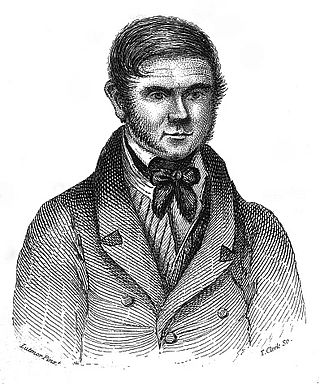
The Burke and Hare murders were a series of sixteen killings committed over a period of about ten months in 1828 in Edinburgh, Scotland. They were undertaken by William Burke and William Hare, who sold the corpses to Robert Knox for dissection at his anatomy lectures.
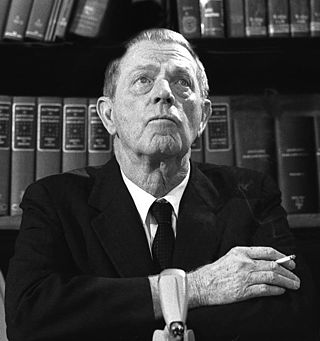
Erskine Preston Caldwell was an American novelist and short story writer. His writings about poverty, racism and social problems in his native Southern United States, in novels such as Tobacco Road (1932) and God's Little Acre (1933) won him critical acclaim.
Tobacco Road is a 1932 novel by Erskine Caldwell about a dysfunctional family of Georgia sharecroppers during the Great Depression. Although often portrayed as a work of social realism, the novel contains many elements of black comedy and sensationalism which made it a subject of controversy following its publication. It was dramatized for Broadway by Jack Kirkland in 1933 and ran for eight years. A 1941 film version, played mainly for laughs, was directed by John Ford, with many of the darker plot elements altered or removed.
Needful Things is a 1991 horror novel by American author Stephen King. It is the first novel King wrote after his rehabilitation from drug and alcohol addiction. It was made into a film of the same name in 1993 which was directed by Fraser C. Heston. The story focuses on a shop that sells collectibles and antiques, managed by Leland Gaunt, a new arrival to the town of Castle Rock, Maine, the setting of many King stories. Gaunt often asks customers to perform a prank or mysterious deed in exchange for the item they are drawn to. As time goes by, the many deeds and pranks lead to increasing aggression among the townspeople, as well as chaos and death. A protagonist of the book is Alan Pangborn, previously seen in Stephen King's novel The Dark Half.
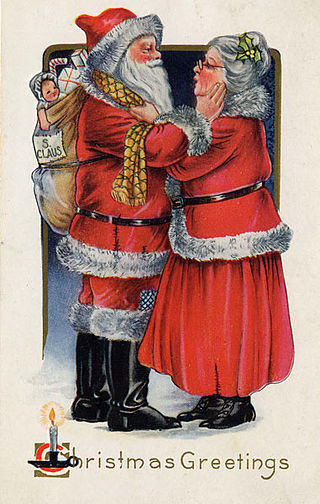
Mrs. Claus is the legendary wife of Santa Claus, the Christmas gift-bringer in Western Christmas tradition.
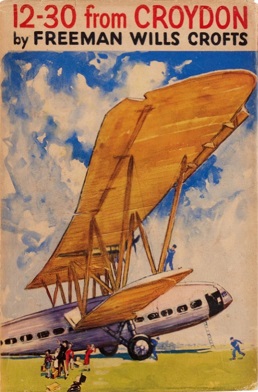
The 12.30 from Croydon is a detective novel by Freeman Wills Crofts first published in 1934. It is about a murder which is committed during a flight over the English Channel. The identity of the killer is revealed quite early in the book, and the reader can watch the preparations for the crime and how the murderer tries to cover up his tracks. The final chapters of the novel are set in a courtroom and during a private function at a hotel, where a résumé of the whole case is given in front of a small group of police detectives, solicitors, and barristers.

Albert Tatlock is a fictional character on the British ITV television soap opera Coronation Street. Albert was played by actor Jack Howarth from 1960 to 1984. The character became something of a cultural icon, so much so that grumpy old men were sometimes nicknamed "Albert Tatlock".

The Heart of Mid-Lothian is the seventh of Sir Walter Scott's Waverley Novels. It was originally published in four volumes on 25 July 1818, under the title of Tales of My Landlord, 2nd series, and the author was given as "Jedediah Cleishbotham, Schoolmaster and Parish-clerk of Gandercleugh". The main action, which takes place between September 1736 and May 1737, is set in motion by the Porteous Riots in Edinburgh and involves an epic journey from Edinburgh to London by a working-class girl to obtain a royal commutation of the death penalty incurred by her sister for the alleged murder of her new-born baby. Despite some negative contemporary reviews, some now consider it Scott's best novel.

"A Rose for Emily" is a short story by American author William Faulkner, first published on April 30, 1930, in an issue of The Forum. The story takes place in Faulkner's fictional Jefferson, Mississippi, in the equally fictional county of Yoknapatawpha. It was Faulkner's first short story published in a national magazine.
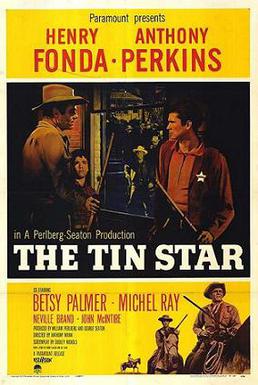
The Tin Star is a 1957 American Western film based on a short story, directed in VistaVision by Anthony Mann and starring Henry Fonda and Anthony Perkins, in one of Perkins' first roles. The film became one of the few low-budget westerns to be nominated for the Oscar for Best Writing, Story or Screenplay. Since its release, the film has become one of the classics of the genre. The supporting cast features Betsy Palmer, Neville Brand, John McIntire and Lee Van Cleef.

Joanne "Jo" Gardner is a fictional character from the long-running soap opera Search for Tomorrow. The role was played by actress Mary Stuart for the show's entire run. Joanne was married four times, making her full legal name Joanne Gardner Barron Tate Vincente Tourneur.
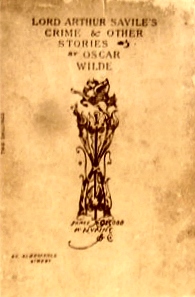
Lord Arthur Savile's Crime and Other Stories is a collection of short semi-comic mystery stories that were written by Oscar Wilde and published in 1891. It includes:
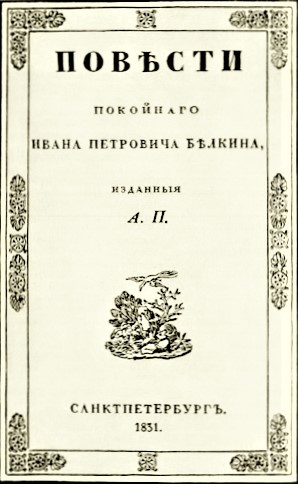
The Tales of the Late Ivan Petrovich Belkin is a series of five short stories and a fictional editorial introduction by Russian author Aleksandr Pushkin. The collection is opened with the editorial, in which Pushkin pretends to be the verbose publisher of Belkin's tales. The tales themselves are not related to one another, except that they are all said in the introduction to be stories told by various people to a recently deceased landowner, Ivan Petrovich Belkin. The introduction continues to say that Belkin was an interesting and mysterious man, even to the point that the woman he left his estate to had never met him. It is also mentioned that Belkin's favorite pastime was to collect and hear stories, several of which are to be presented to the reader.
"A Gentle Creature", sometimes also translated as "The Meek One", is a short story by Fyodor Dostoyevsky written in November 1876. A first-person stream of consciousness narrative, the piece comes with the subtitle of "A Fantastic Story", and it chronicles the relationship between a pawnbroker and a girl that frequents his shop. The story was inspired by a news report that Dostoyevsky read in April 1876 about the suicide of a seamstress. Dostoyevsky referred to it as a "meek suicide" that "keeps haunting you for a long time."

Creepshow 3 is a 2006 American comedy horror film, and a sequel to Stephen King and George A. Romero's horror anthology films Creepshow (1982) and Creepshow 2 (1987). It was directed and produced by Ana Clavell and James Dudelson. The film stars Kris Allen, A. J. Bowen, Emmett McGuire and Stephanie Pettee. Like its predecessors, the film is a collection of tales of light-hearted horror: "Alice", "The Radio", "Call Girl", "The Professor's Wife", and "Haunted Dog", although there is no EC Comics angle this time around. The film was panned by critics.

Little Men (1940) is an American film based on the novel Little Men (1871) by Louisa May Alcott. Norman Z. McLeod directed the film. It is the second sequel to Little Women after Little Men

La jolie parfumeuse is an opéra comique in three acts of 1873 with music by Jacques Offenbach. The French libretto was by Hector Crémieux and Ernest Blum.
"The People's Choice" is a short story by Erskine Caldwell, a satire on 1930s local politics in the writer's home state of Georgia and by extension on politics in general.
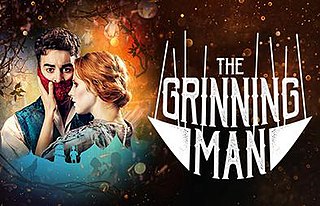
The Grinning Man is a tragicomic musical based on Victor Hugo's 1869 novel The Man Who Laughs with a book by Carl Grose, music by Tim Phillips, Marc Teitler and lyrics by Carl Grose, Tom Morris, Tim Phillips and Marc Teitler.